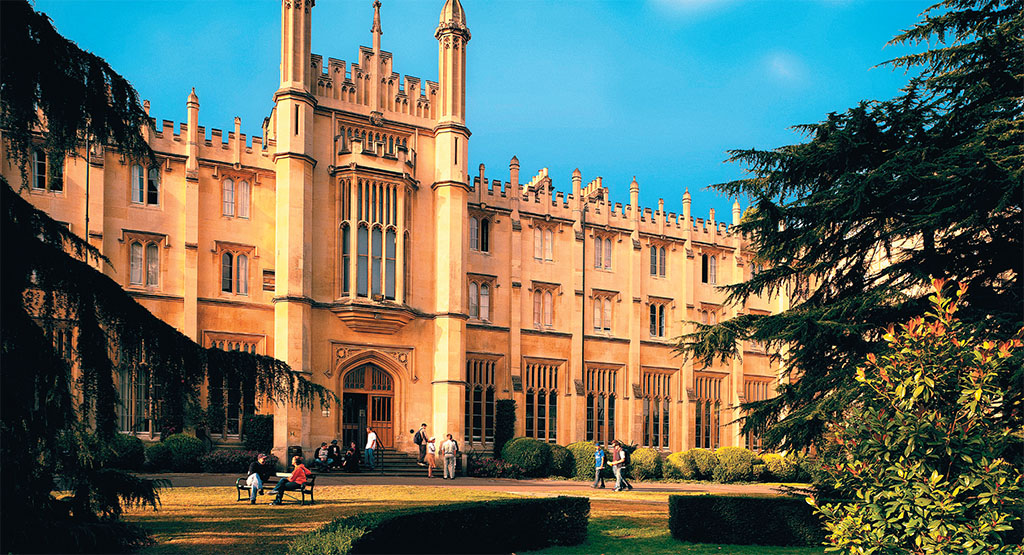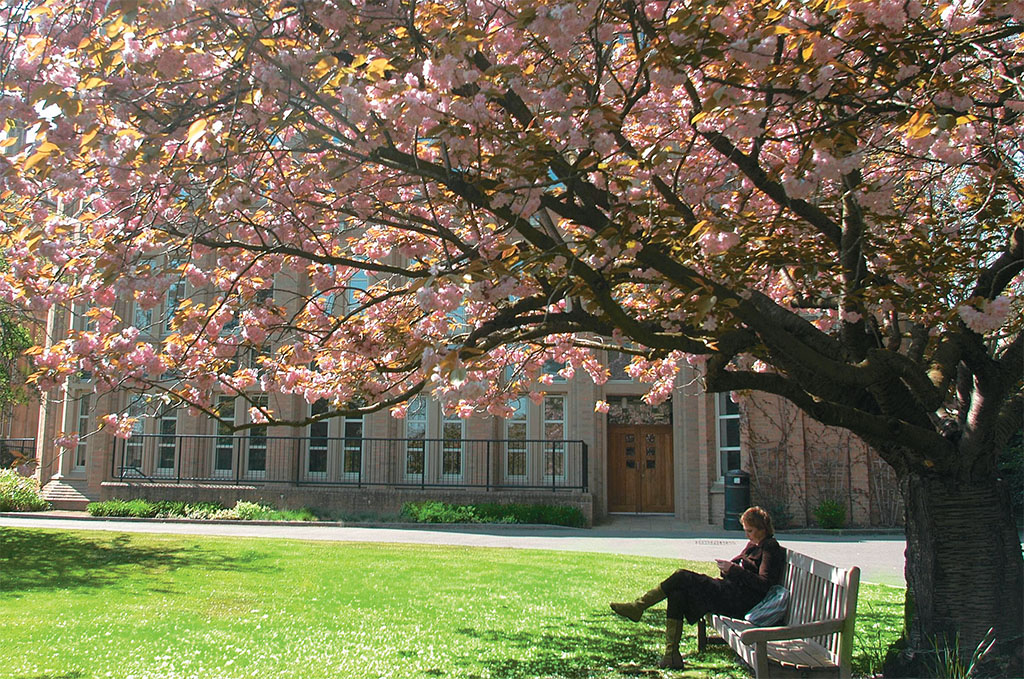
[caption id="RichmondtheAmericanInternationalUniversityinLondon_img1" align="aligncenter" width="1024"]

COURTESY OF RICHMOND UNIVERSITY
MANY ANGLOPHILES and British Heritage readers began their lifelong love of Britain as students. Educational travel and study abroad are simply the best way for American students of all ages to gain a real sense of the broader world and the age of history, and an appreciation for the roots of our own American heritage in Great Britain. Every year, thousands of high school students travel over with an enthusiastic English teacher. Many more take a Jan Term or a semester or more in Britain on a college study abroad program. Some lucky and adventurous students take their entire undergraduate education at Richmond.
The only college fully accredited in both the United States and the United Kingdom, Richmond uniquely offers an American education in the most lively and exciting of British settings. The university’s underclass campus sits high on tony Richmond Hill near Richmond Park—perched between Kew Gardens and Hampton Court Park at the southwestern end of the Underground’s District Line.
Founded as Richmond College in 1843, the school was originally a constituent part of the University of London. In due course, as institutions evolve, it became the college it is today, the American International University in London. At the bottom of the hill, Richmond-upon-Thames is a vibrant town within the city, with a mixture of bistros, shops, bookstores and the colorful riverside.
While more than a third of Richmond’s 1,250 students are adventurous young Americans, its international community this year includes students from 120 different countries. The combination of a London setting and an American education is attractive to students from around the world. The result is an extremely cosmopolitan collegiate community of students and faculty. In the university’s huge neo-Gothic main building, they mingle easily in classroom, dining commons and dorm. Yes, everyone is fluent in English; in fact most people there speak several languages.
Richmond’s most popular academic majors are, not surprisingly, international relations and international business. The school’s strong liberal arts core is focused on preparing students to assume careers in a global environment. But London is also a great place to study such things as history, theater arts, art design, communications, computers and media as well.
[caption id="RichmondtheAmericanInternationalUniversityinLondon_img2" align="aligncenter" width="1024"]

COURTESY OF RICHMOND UNIVERSITY
‘In a more dynamic sense, the campus is all of London itself’
After two years in Richmond, most students move “down the hill” to the university’s upperclass campus in Kensington, tucked in the museum district between Gloucester Road and Kensington High Street. Campus shuttle buses (and District Line trains) carry folks easily between campuses. Kensington is also the home of Richmond’s graduate program in art history, though the university’s study centers in Florence and Rome serve as a base for exploring the Renaissance.
In one sense, campus life at Richmond doesn’t differ from any other college: the commons and the clubs, the classrooms, the causes and the pick-up basketball games. In a more dynamic sense, though, the campus is all of London itself. The raft of world-class museums, theaters, historic monuments and buildings, the cafés and parks, and the annual cycle of events in the London social and royal year are all a part of campus life as well. What a college experience!
The small university taps the enviable wealth of London in many ways, including its people. Lord Richard Attenborough, for instance, is a neighbor and presidential adviser. Lord Briggs of Lewes, widely regarded as Britain’s premier authority on Victorian history, chairs the Board of Academic Governors. Richmond’s chancellor, Sir Cyril Taylor, has served as chairman of the Specialist Schools Trust since 1987. Undergrads themselves, of course, may be more impressed by the lights of the West End, London’s great pub culture and their faculty from around the world.
As a fully American school, students apply to Richmond as they would anywhere else, file the FAFSA and receive relevant financial aid. It is all on the Richmond Web site at www.richmond.ac.uk. Taking part in the Richmond university experience, however, is not restricted to taking a Richmond degree program. Every year several hundred students from colleges across the States spend a semester or a year at the Richmond Hill campus under the American Institute for Foreign Study’s study abroad program. Yes, you too can take a turn living the student life in one of the most exciting cities in the world. The details are at the Web site: www.aifsabroad.com..
Travel from these shores is enriching, eye opening and intrinsically educational. Great Britain has long been the most accessible “foreign” society to Americans, because of our shared culture, language and political heritage. Britain is quite simply familiar enough not to be threatening, and friendly enough not to be intimidating. Whether it’s on a whirlwind spring-break trip or an extended academic stay, student travel to Britain provides the perfect introduction to the big, wide world beyond our borders.
It doesn’t take long being in London these days to realize that more than ever you are in the crossroads of the world. The Richmond academic community is a microcosm of London’s diversity of people and cultures. To be a student, to be there, to be part of such a global educational experience would be an awesome enterprise. Hands across the sea, indeed.





Comments